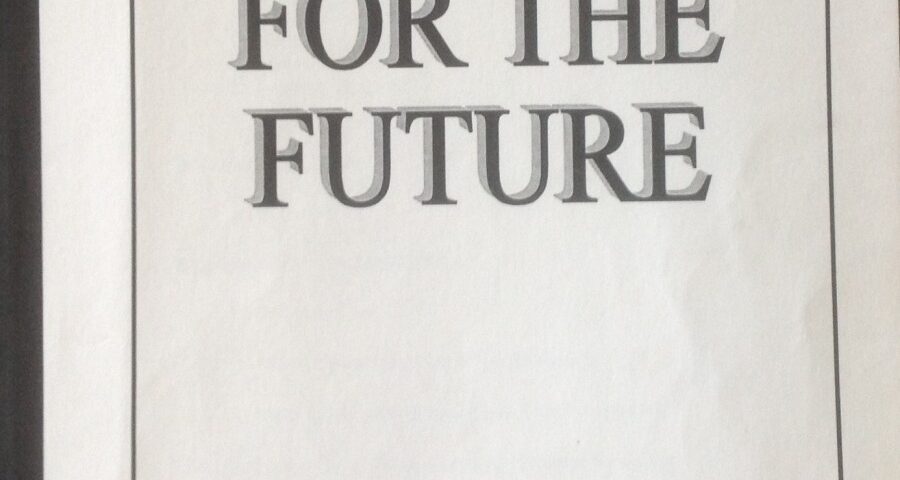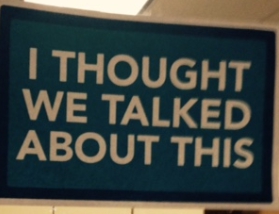
Strategy or Culture – Which Would You Rather Have?
May 9, 2015
From the Cheapest, to the Smartest – What Does it Cost to Change an Organizational Culture?
June 9, 2015HOW WILL YOUR ORGANIZATION HANDLE DISRUPTION??
DISRUPTION: A disturbance or problem that interrupts an Event, Activity, or Process.
In previous posts, I have tried to build a case for the idea that our current and future world will be full of rapid change that will disrupt the current way that organizations operate. We have arrived at the place where businesses are no longer looking for incremental change – we now want a new product that disrupts the existing way we are doing things. The new success is to make something obsolete.
Thomas Friedman [a regular columnist for the New York Times] authored an editorial worth some further thought. The title of the editorial was:
“Hillary, Jeb, Facebook and Disorder”
Friedman’s main point was that we have a lot of important issues to grapple with, and that in our current political environment, no politicians are talking about the “Elephant in the Room”: our world being disrupted.
Some of his key observations:
- We are redefining the social contracts between governments and their citizens as well as employers and their employees. Issues like the trade deals, immigration, having three generations in the work force at one time, Baby Boomers retiring,-and the state of our health care system, just to name a few.
- The massive change in our use of technology. We are now in a period where there are no limitations to computing power. We have no digital storage issues, we have no bandwidth constraints, and networking, sensor, and software generation are exploding. It is projected that 75-80 % of how we use technology today will be obsolete in the next 10 years [and maybe faster.] Some of our planet’s most brilliant individuals think that our biggest issue is that now computers are smarter than humans.
- Jobs that are endangered. In the trade deals of the past the driver seemed to be finding cheap production, which changed the country’s job opportunities. Now, with the massive increase in computing power, Friedman quotes a recent Oxford Martin School study that concluded that: “47% of US jobs are at high risk of becoming taken over by smart machines and software in the next 20 years. Knowledge workers at the middle or top may be more threatened than those doing Physical work.”
- What is worth owning? Friedman quotes from an essay by Tom Goodman, an executive of Havas Media:
“Uber, the world’s largest taxi company, owns no vehicles. Facebook, the world’s most popular media owner, creates no content. Alibaba, the most valuable retailer, has no inventory. And Airbnb, the world’s largest accommodation provider, owns no real estate. Something interesting is happening.”
There sure is. We’re at the start of a major shift on the question of what’s worth owning. What all of the above companies have in common is that they have either created trust platforms that match supply and demand for things people never thought of supplying: a spare bedroom in their home or a seat in their car or a commercial link between a small retailer in North Dakota and a small manufacturer in China. Or they are behavioral platforms that spin off extremely valuable data for retailers and advertisers or they are behavioral platforms on which ordinary people can generate reputations — for driving, hosting or any skill you can imagine — and then market themselves globally.”
WE ARE LEAVING THE WORLD OF MACRO CONTROL AND MOVING TO THE WORLD OF MICRO…
What will a world of migrating people look like?
People all over the globe are starting to migrate from one place to another. At this point the migration is being fueled by people leaving “Disorder Zones” and hoping to find “Order Zones”. All over the Middle East and North Africa, Africans and Arabs are trying to get to Europe. People in Myanmar and Bangladesh are trying to get to Thailand and Malaysia. Central American parents are sending their kids to the United States. Last year, the UN’s refugee agency said that more than 50 million people were displaced – more than any time since World War II.
What happens over the next few years if the drought in California continues, and Boston continues to have winters with 108 inches of snow?
Migration is no longer East to West or Capitalism vs. Communism.
What will be the impact of a warmer planet?
Migration is one of the possibilities – but what about our food chain, or the fact that Florida might lose the Everglades due to higher ocean water levels?
At this point, I am sure you are thinking: “These things are so out of my control, I will just keep my head down and react when I need to react.”
That is One way to respond to the complexity of these issues – another option is to work toward creating an organizational culture that collaborates, and can adapt and make small adjustments, in order to be better able to respond to more destructive disruptions.
Here is one example:
Let’s look at the probability of your organization needing to implement a new level of technology – one that you have never seen before. Let’s assume that you have tried to implement a mobile business application, but never really made this initiative an imperative. Your business culture did not adapt fully to mobile technology and embrace the change in methodology and technology.
Now it is a new disruptive factor in your business strategy, you will either have to adapt with a big leap in technology, or lose your business to competition that is using this application to its fullest.
Building an organizational culture that can adapt to change will help manage the distinct possibility of a major disruption to your business model that you are not prepared for…
When you look back to the chance you had to create a culture that was able to migrate to the previous mobile app, you might be better positioned to make the kind of incremental organizational changes, to handle this new disruption.
Friedman concludes his editorial by paraphrasing Trotsky once more:
“You may not be interested in talking about the future, but the future will be interested in talking to you!”





